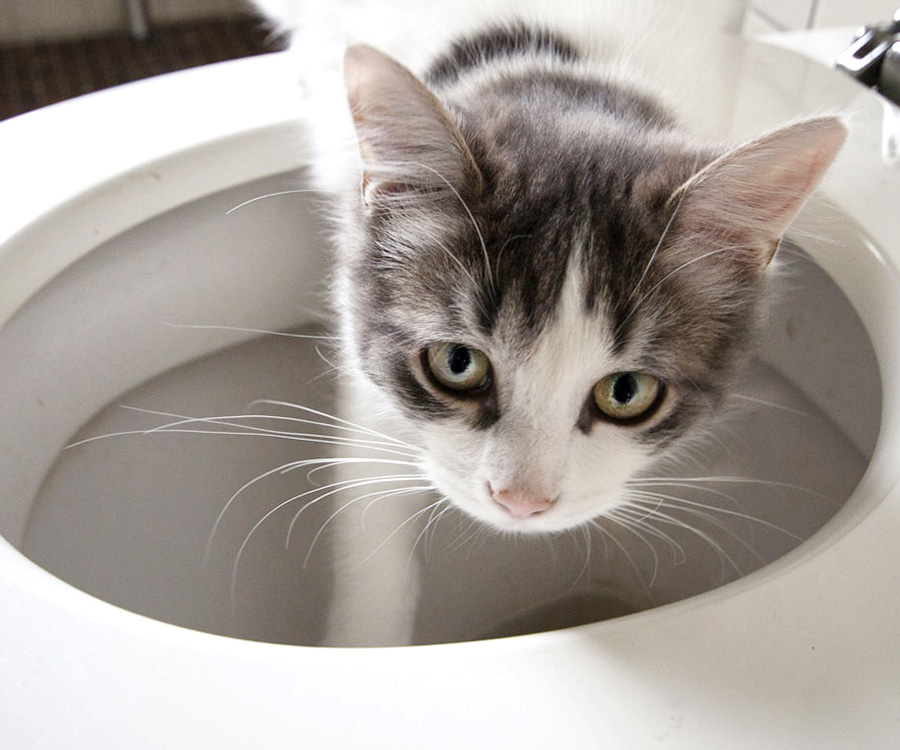The Dangers of Flushing Cat Poop Down Your Toilet - Tips for Better Disposal
The Dangers of Flushing Cat Poop Down Your Toilet - Tips for Better Disposal
Blog Article
Have you been trying to locate insight about Can You Flush Cat Poo or Litter Down the Toilet??

Intro
As feline proprietors, it's vital to bear in mind how we take care of our feline friends' waste. While it may seem practical to flush cat poop down the toilet, this practice can have damaging repercussions for both the atmosphere and human health and wellness.
Alternatives to Flushing
Luckily, there are more secure and much more responsible ways to deal with pet cat poop. Think about the adhering to options:
1. Scoop and Dispose in Trash
The most typical approach of getting rid of cat poop is to scoop it into an eco-friendly bag and throw it in the garbage. Be sure to utilize a devoted clutter scoop and deal with the waste quickly.
2. Use Biodegradable Litter
Select naturally degradable feline trash made from materials such as corn or wheat. These litters are eco-friendly and can be safely dealt with in the trash.
3. Bury in the Yard
If you have a yard, consider hiding feline waste in a designated area away from vegetable yards and water sources. Be sure to dig deep enough to stop contamination of groundwater.
4. Set Up a Pet Waste Disposal System
Purchase a pet dog garbage disposal system especially developed for cat waste. These systems utilize enzymes to break down the waste, decreasing odor and ecological effect.
Wellness Risks
Along with environmental worries, purging feline waste can additionally present health dangers to human beings. Feline feces might have Toxoplasma gondii, a bloodsucker that can trigger toxoplasmosis-- a possibly extreme illness, specifically for pregnant ladies and people with damaged immune systems.
Environmental Impact
Flushing pet cat poop presents harmful pathogens and bloodsuckers into the supply of water, posturing a substantial risk to aquatic ecosystems. These impurities can negatively affect marine life and concession water high quality.
Conclusion
Accountable animal possession extends beyond offering food and sanctuary-- it additionally entails proper waste administration. By refraining from flushing feline poop down the toilet and going with different disposal techniques, we can decrease our ecological footprint and secure human health.
Why Can’t I Flush Cat Poop?
It Spreads a Parasite
Cats are frequently infected with a parasite called toxoplasma gondii. The parasite causes an infection called toxoplasmosis. It is usually harmless to cats. The parasite only uses cat poop as a host for its eggs. Otherwise, the cat’s immune system usually keeps the infection at low enough levels to maintain its own health. But it does not stop the develop of eggs. These eggs are tiny and surprisingly tough. They may survive for a year before they begin to grow. But that’s the problem.
Our wastewater system is not designed to deal with toxoplasmosis eggs. Instead, most eggs will flush from your toilet into sewers and wastewater management plants. After the sewage is treated for many other harmful things in it, it is typically released into local rivers, lakes, or oceans. Here, the toxoplasmosis eggs can find new hosts, including starfish, crabs, otters, and many other wildlife. For many, this is a significant risk to their health. Toxoplasmosis can also end up infecting water sources that are important for agriculture, which means our deer, pigs, and sheep can get infected too.
Is There Risk to Humans?
There can be a risk to human life from flushing cat poop down the toilet. If you do so, the parasites from your cat’s poop can end up in shellfish, game animals, or livestock. If this meat is then served raw or undercooked, the people who eat it can get sick.
In fact, according to the CDC, 40 million people in the United States are infected with toxoplasma gondii. They get it from exposure to infected seafood, or from some kind of cat poop contamination, like drinking from a stream that is contaminated or touching anything that has come into contact with cat poop. That includes just cleaning a cat litter box.
Most people who get infected with these parasites will not develop any symptoms. However, for pregnant women or for those with compromised immune systems, the parasite can cause severe health problems.
How to Handle Cat Poop
The best way to handle cat poop is actually to clean the box more often. The eggs that the parasite sheds will not become active until one to five days after the cat poops. That means that if you clean daily, you’re much less likely to come into direct contact with infectious eggs.
That said, always dispose of cat poop in the garbage and not down the toilet. Wash your hands before and after you clean the litter box, and bring the bag of poop right outside to your garbage bins.
https://trenchlesssolutionsusa.com/why-cant-i-flush-cat-poop/

Do you appreciate reading about Don’t flush cat feces down the toilet? Give a short review below. We'd be delighted to listen to your thoughts about this posting. We are looking forward that you visit us again before long. Sharing is caring. You never know, you may very well be helping someone out. Thanks for your time. Come back soon.
Visit My Site Report this page